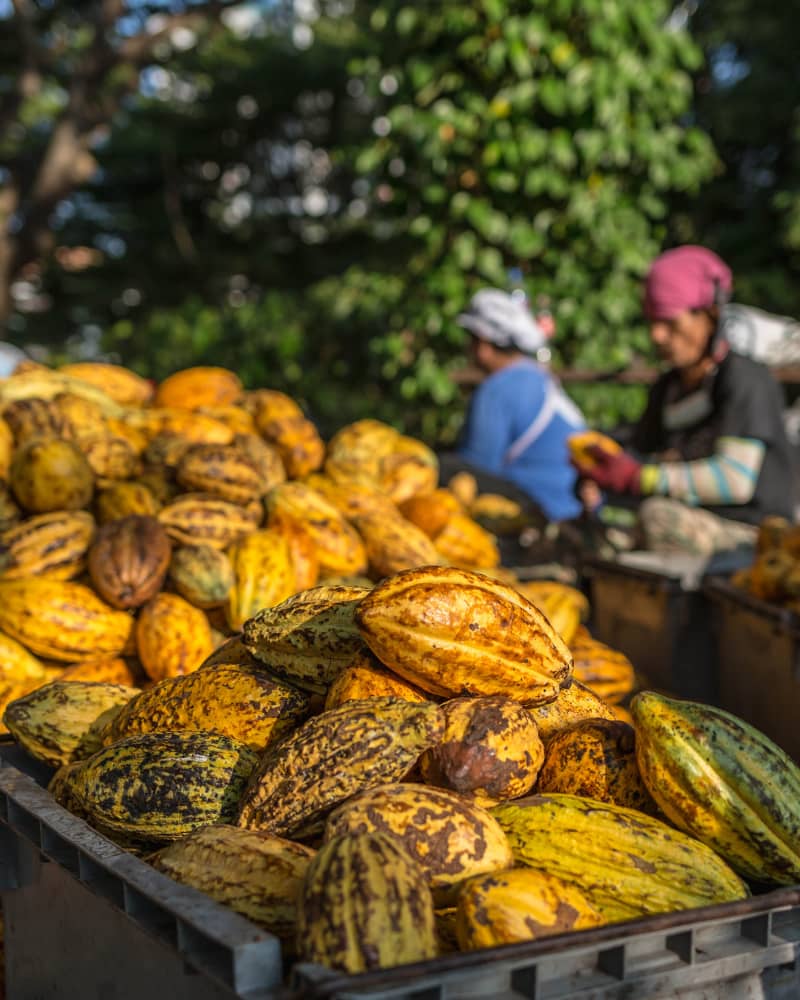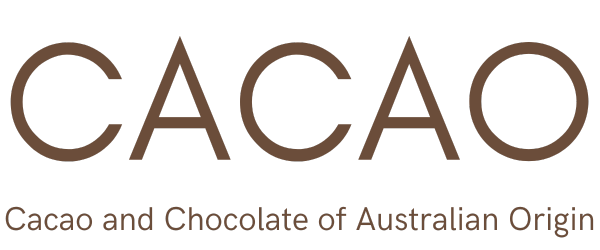The Environment
The environmental impacts of growing cocoa and making chocolate are diverse and can affect the ecosystem, the soil, the water, and the climate. Here are some examples:
- Deforestation: Cocoa production often involves clearing large areas of rainforest, which leads to deforestation, habitat loss, and a decline in biodiversity.
- Land degradation: Cocoa farming can deplete the soil of nutrients, leading to soil erosion and reduced fertility, which can make it difficult to grow crops in the future.
- Water pollution: The use of pesticides and fertilizers in cocoa farming can contaminate water sources, leading to water pollution and harm to aquatic ecosystems.
- Greenhouse gas emissions: The production and processing of cocoa and chocolate products can result in significant greenhouse gas emissions, contributing to climate change.
- Water use: Cocoa farming requires a lot of water, and in areas where water is scarce, the demand for water can cause depletion of freshwater resources.
- Waste generation: The production of chocolate products can generate a significant amount of waste, including packaging materials and cocoa shells, which can lead to landfilling and environmental pollution.
- Energy use: The processing of cocoa into chocolate requires a lot of energy, which often comes from fossil fuels, contributing to greenhouse gas emissions and climate change.

These environmental impacts can vary depending on the specific practices used in cocoa farming and chocolate production.
Sustainable practices, such as agroforestry, shade-grown cocoa, and responsible sourcing of cocoa, can help mitigate some of these impacts.
Case study: West Africa and environmental degradation
In the heart of West Africa lies a vast expanse of rainforest that is home to one of the world’s most beloved commodities: cocoa. The chocolate industry is worth billions of dollars, but it comes at a steep environmental cost. The cultivation of cocoa has had a profound impact on the ecosystems and communities that depend on them.
Cocoa farmers in West Africa clear rainforest to make way for their plantations. This process releases carbon into the atmosphere, contributing to global warming. Deforestation also destroys habitats for countless species of plants and animals, threatening biodiversity and the balance of delicate ecosystems.
But the environmental impact of cocoa production extends far beyond deforestation. The intensive use of pesticides and fertilizers needed to grow cocoa has led to soil degradation and water pollution. These chemicals not only harm the environment but also pose a significant risk to the health of farmers and nearby communities.
Moreover, cocoa farming is a labor-intensive industry, and many cocoa farmers in West Africa are smallholders who rely on their crops for their livelihoods. But they often lack the resources and training to adopt sustainable farming practices, such as agroforestry, which integrates trees into the cocoa plantations and helps to restore soil fertility and reduce erosion.
The consequences of unsustainable cocoa farming are evident in the poverty and hardship faced by many cocoa farmers and their families. The environmental degradation caused by cocoa production also threatens the long-term viability of the industry and the livelihoods of those who depend on it.

Our Australia-Pacific Sustainability?

